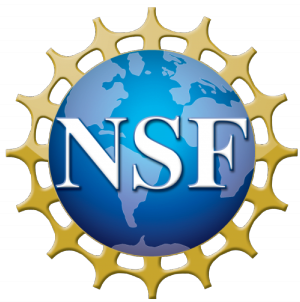August 1st, 2021 - July 31st, 2024 | PROJECT
This Innovations in Development project is funded by the Advancing Informal STEM Learning program, which seeks to advance new approaches to, and evidence-based understanding of, the design and development of STEM learning in informal environments. This includes providing multiple pathways for broadening access to and engagement in STEM learning experiences, advancing innovative research on and assessment of STEM learning in informal environments, and developing understandings of deeper learning by participants.
Quantum information science (QIS) is an emergent cross-disciplinary field at the interface of physics, computer science, materials science, and engineering. Yet, there are few educational programs that encourage young people to explore QIS and understand its applications and societal benefits. Such programs are critical for supporting the growth of a quantum-ready workforce. Building intuition is a foundational first step but this is challenging because quantum effects are neither visible to the naked eye, nor experienced in everyday life. This project will create a suite of accessible, engaging digital games for middle schoolers, and study their effectiveness in cultivating intuition around QIS. Relating QIS concepts to common game mechanics is designed to increase students’ confidence in their QIS knowledge, reduce their fear of tackling such a subject, and consider pursuing a career in this field or another STEM area. The game-driven design appeals to a broad population beyond the age groups studied. Moreover, the deliverables will be freely available online, which allows anyone with a phone or computer and internet access a way to learn about QIS in an engaging, play-based environment. The program will partner with teacher organizations and other community groups to share the games, maximizing the project’s impact.
The project is guided by the QIS Key Concepts developed in 2020, as well as research and best practices on gamification of learning. The games will be designed for 6th-8th grade students in an informal setting, focusing on the concepts of probability, superposition, and role of measurement. A game world titled "Quander" will include videos that explicitly tie game experiences to QIS concepts and applications. The project will evaluate students' understanding after playing the games and watching the videos, how they engage with aspects of the games, and how the game impacted their interest in QIS. The project data will advance understanding of how to facilitate QIS informal learning experiences in ways that engage young audiences in QIS and similar abstract emerging areas of technology where current research is scant. This project represents one of the first efforts to teach QIS concepts in ways that connect directly to young learners’ play-based experiences. Data gathered from the project will help future program designers understand the ability of young learners to reason about QIS concepts such as measurement, superposition and probabilities in game contexts, providing insights to the ages at which students are ready for more technical content.
Project Website(s)
(no project website provided)
Team Members
Diana Franklin, Principal Investigator, University of ChicagoEmily Edwards, Co-Principal Investigator
Danielle Harlow, Principal Investigator, University of California-Santa Barbara
Funders
Funding Source: NSF
Funding Program: Advancing Informal STEM Learning (AISL)
Award Number: 2115780
Funding Amount: $1,037,736.00
Funding Program: Advancing Informal STEM Learning (AISL)
Award Number: 2115843
Funding Amount: $221,100.00
Tags
Audience: Educators | Teachers | Middle School Children (11-13) | Museum | ISE Professionals
Discipline: Computing and information science | Engineering | Materials science | Physics
Resource Type: Project Descriptions | Projects
Environment Type: Games | Simulations | Interactives | Media and Technology | Websites | Mobile Apps | Online Media

